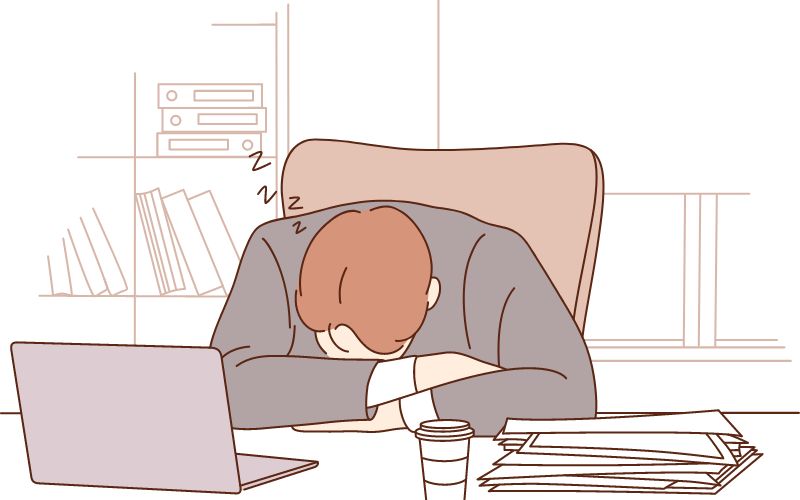Depression in the work environment can have a critical effect on an individual's capacity to perform their work, their quality of life, and by and large well-being.
Depression in the work environment can have several causes, a few of which may include:
Work push: Long hours, requesting workload, and working environment clashes can all contribute to sentiments of push and burnout, which can inevitably lead to depression.
Need for work fulfillment: Feeling unsatisfied with one's work or career can lead to sentiments of boredom, dissatisfaction, and lack of assurance, which can contribute to depression.
Confinement and need for social back: Investing long hours at work without significant associations with colleagues or a need for strong connections exterior of work can contribute to sentiments of depression and social separation, which can lead to depression.
Work-life awkwardness: When the requests of work meddle with one's capacity to go to other imperative regions of life, such as family and individual connections, it can lead to sentiments of blame, stretch, and burnout.
Injury and badgering: Presentation to traumatic occasions or encounters, such as working environment badgering or viciousness, can have a significant effect on mental well-being and can lead to depression.
Monetary strain: Monetary troubles, such as battling to make close meet or being incapable of paying bills, can contribute to sentiments of push and uneasiness, which can lead to depression.
Physical well-being issues: Unremitting physical well-being issues, such as torment or constant sickness, can affect mental well-being and increase the chance of depression.
Symptoms of working environment depression may include:
Weariness and misfortune of energy
Trouble concentrating and making decisions
Changes in craving and rest patterns
Sentiments of uselessness or guilt
Diminished inspiration and intrigue in work and other activities
Physical side effects such as cerebral pains or stomach-related problems
Expanded non-appearance and diminished productivity
Trouble associating with colleagues and completing tasks
Contemplations of passing or suicide
It's imperative to note that everybody unexpectedly encounters misery and may encounter diverse symptoms.
There are a few ways to treat discouragement in the work environment, including:
Psychotherapy, such as cognitive-behavioral treatment or interpersonal therapy
Drugs, such as antidepressants
Work out and physical activity
Mindfulness and push-decrease techniques
Back bunches and counseling
Sound way of life changes, such as making strides to eat less and expanding sleep
In arrange to determine the viability of treatment for misery in the working environment, it's critical to track advanced and screen indications. This may involve:
Self-reports and appraisals, such as journaling and standardized questionnaires
Criticism from colleagues, administrators, and family members
Measures of work execution and satisfaction
Checking of physical indications and well-being markers
Customary check-ins with a mental well-being proficient to survey the viability of treatment and alter as needed
Bosses must be proactive in tending to misery in the work environment, giving assets back to workers, and making a culture that prioritizes mental well-being. Early mediation and compelling treatment can lead to progressed efficiency, work fulfillment, and quality of life for employees.
Book a one-on-one session with experienced Psychologists.

Leave a Reply